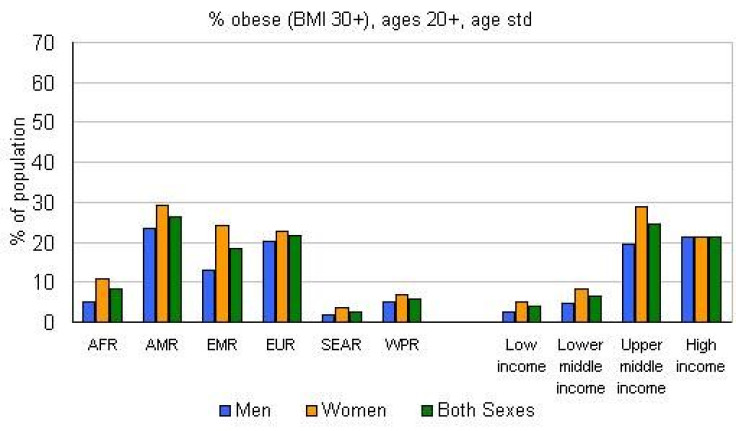Sex-Specific Weight Loss Drugs: Men's And Women’s Brains May React Differently To Obesity Medications

Men and women respond differently to diet, exercise, and weight loss, but scientists from the University of Aberdeen, University of Cambridge, and the University of Michigan teamed up to explore if each gender had a contrasting physiological response to weight loss drugs. Their findings, published in the journal Molecular Metabolism, reveal that activity in women's brains may not favor weight loss efforts.
“The World Health Organization (WHO) reports higher rates of obesity in women worldwide, reaching twice the prevalence of men in some parts of the world,” said the study’s lead researcher, Lora Heisler, from the University of Aberdeen’s Rowett Institute of Nutrition and Health, in a press release. “What we have discovered is that the part of the brain that has a significant influence on how we use the calories that we eat is wired differently in males and females.”
For the study, researchers separated a group of male and female mice and gave them an obesity medication. Next, they tracked each mouse’s neurological pathways to see if the brain reacted differently depending on the gender of the mouse. Cells inside the brain produce hormones called pro-opiomelanocortin (POMC) peptides to help regulate appetite, physical activity, energy expenditure (calorie burning), and body weight. Most obesity medications target and boost POMC peptides because of their influence on the body’s ability to lose weight.
It turns out, the male mice benefited from a reduced appetite, increased energy expenditure, and desire to engage in physical activity. Meanwhile, female mice only benefited from a reduced appetite, demonstrating the brain’s inability to reap identical benefits as their male counterparts. This led researchers to believe that women aren’t benefiting from weight loss medications in the same way as men.
Aside from the fact men tend to naturally accumulate more muscle than women because muscle burns more calories from fat, there are other physical differences that widen the gap between the genders. Having more muscle tends to increase their metabolism anywhere between 3 to 10 percent higher than women. According to the Centers for Disease Control and Prevention, more than one-third of adults in the United States are obese, most of which are women. America serves as a microcosm for the rest of the world, which reflects the same statistical gender difference with women outweighing men.

“Currently there is no difference in how obesity is treated in men and women,” Heisler said. “ Given the links established between obesity and serious medical illnesses including cancer, heart disease and diabetes, it is essential that we strive to find new methods to tackle this epidemic to improve our health. This could have broad implications for medications used to combat obesity, which at present largely ignore the sex of the individual.”
Source: Heisler LK, Burke LK, and Doslikova B, et al. Sex difference in physical activity, energy expenditure and obesity driven by a subpopulation of hypothalamic POMC neurons. Molecular Metabolism. 2016.



























